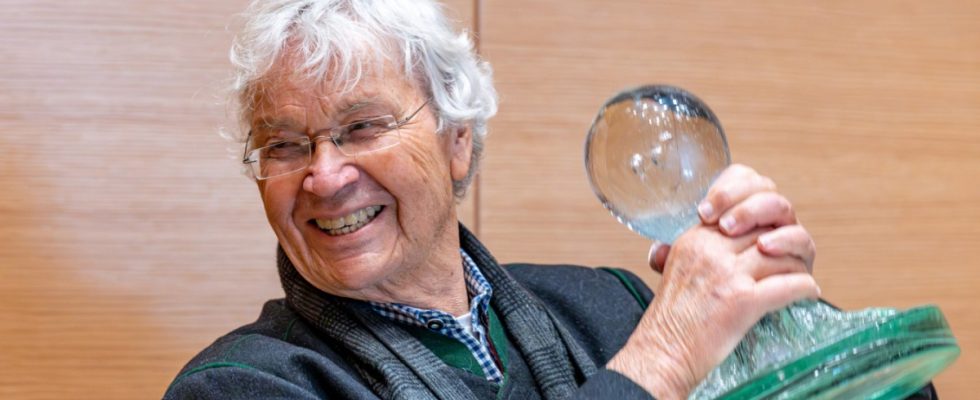When Gerhard Polt accepted the Bavarian language root on Saturday as the award winner, he said that shortly beforehand he had heard a speaker on the car radio announcing in a virtuoso manner that she would soon be moderating a Ho-Agascht. By practically ignoring the Bavarian diphthong “oa” with the overemphasis on the vowels o and a, the otherwise good-humoured woman made it clear that she was either unfamiliar with the dialect term Hoagascht (social music-making) or perhaps not comfortable with it.
This strangeness with the local language tradition is no longer a rarity on radio and television. Of course, it is no secret that Bavarian with all its variations generally suffers from consumption. The malaise has been inflating for decades. The cabaret artist Georg Ringsgwandl, who also has language roots, once summed up the problem succinctly: “Boarian is a dying language.”
In order to draw attention to the value of this cultural asset, the Bavarian Language Association came up with the idea of awarding a Bavarian language root every year 20 years ago. Namely to people who are not afraid to use the regional idiom at public events and in the media. On Saturday, the language root was awarded for the 19th time, to the great Bavarian philosopher Gerhard Polt, who is at home in many of the world’s languages and is therefore able to emphasize the special features of Bavarian.
He compared this language to the richness of an ocean, “we really have every reason to have great self-confidence with it,” he said. He shares every sympathy with people who do not speak Bavarian, Polt continued, as they are more plagued by a lack of language. It’s really not easy to have to get through life with so few expressions.
Sepp Obermeier, chairman of the Bavarian Language Association, then emphasized that Polt had never succumbed to the temptation to use Bavarian as an exotic idiom for cheap laughs or as a commercial vehicle. In an interview that he gave to Bayerischer Rundfunk in Middle Bavarian, he exceeded the award criteria.
In the great tradition of old Bavarian baroque moral preachers
Laudator Reinhard Wittmann, the former head of literature at Bayerischer Rundfunk, said that this time the award was not so much an honor for the award winner as the award winner was an honor for the award. There is no other personality in Germany who embodies the Bavarian idiom as much as Gerhard Polt, emphasized Wittmann. The cabaret artist not only stands in the great tradition of old Bavarian baroque moral preachers, but also, like no other, for the originality, the inventiveness, the liveliness and the expressiveness of the Bavarian.
Nevertheless, the Bavarian language, which is rapidly disappearing, will hardly be able to survive the 21st century, Wittmann said. Irrespective of this, Polt strengthened the regional language self-confidence so sustainably that many elements of today’s Bavarian and southern high German language would find their way into the everyday language of future generations.
The awarding of the language root took place this time in the House of Bavarian History in Regensburg. This proved to be a suitable place insofar as not only the strong interweaving of Bavaria in Europe is documented there, but also a tavern is integrated, which created ideal opportunities for the award winners as well as the audience to continue the theoretical language discussions over food and drink.
How deeply European colored and intertwined the Bavarian language is was shown in the lively discussion that host Richard Loibl and dialect pope Ludwig Zehetner had with Polt about the verb to think (to cramp, to steal). When Polt brought up a connection to the Italian word taccheggiare, the result was a conversation worthy of any language symposium. The debate was spiced with a lot of humor in the Poltian sense, i.e. with a cultural asset that – similar to Bavarian culture – was recently threatened from all sides.

